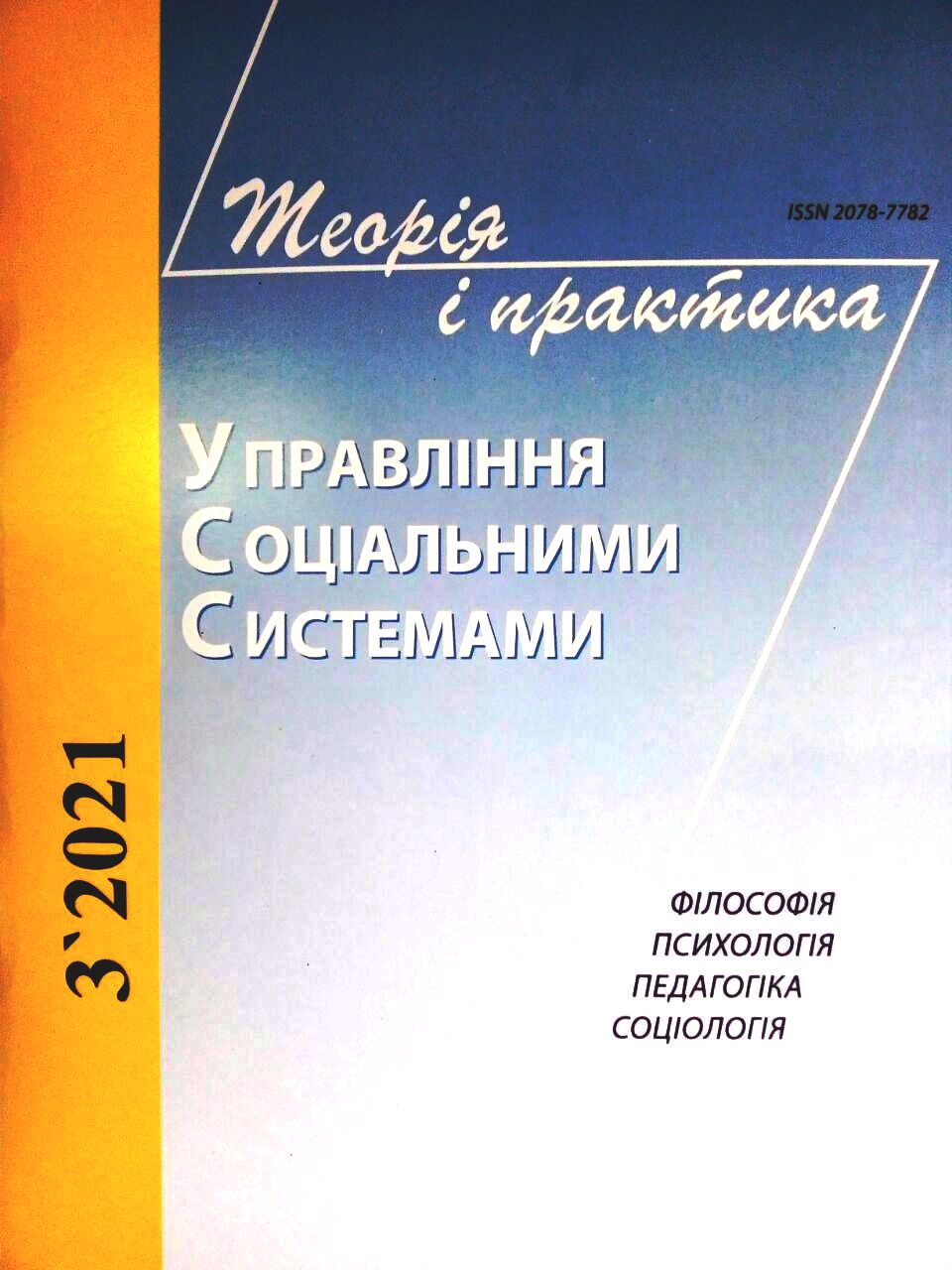ПСИХОЛОГІЧНІ ОСОБЛИВОСТІ ПОВЕДІНКИ ТА ЯКІСТЬ ЖИТТЯ ПОСТІНСУЛЬТНИХ ПАЦІЄНТІВ
DOI:
https://doi.org/10.20998/2078-7782.2021.3.10Ключові слова:
психологічні постінсультні особливості, психіка людини після інсульту, депресивні розлади, со ціальна ідентичність, взаємодії людей після інсульту, інфаркт головного мозку, огляд.Анотація
Стаття присвячена важливій проблемі психології, неврології, та реабілітації - питанню психологічних особливостей поведінки, які розвинулись внаслідок інсульту. Проаналізовано, які психологічні особливості виникають внаслідок ішемічного інсульту т а як вони впливають на якість життя пацієнтів. Показана роль факторів, які впливають на психоемоційний стан та реабілітаційний потенціал пацієнтів.
Посилання
1. Perna, Robert, Lindsey Harik. (2020), “The role of rehabilitation psychology in stroke care described through case examples”, Neuro-rehabilitation Preprint, pp. 1–10
2. Wang, L, Xiong, X, Zhang, L, Shen, J. (2021), “Neurovascular Unit: a critical role in ischemic stroke”, CNS Neurosci ther, no. 27, pp. 7–16, available at: https://doi.org/10.1111/cns.13561
3. Jonsson, A. C., Delavaran, H., Lovkvist, H., (2018), “Secondary prevention and lifestyle indices after stroke in a longterm pers-pective”, Acta Neurol Scand, no. 138, pp. 227–234
4. Poloz, O. A. (2021), “Psychological aspects of the palliative care for AIDS and HIV patients”, Nursing, no. (4), pp. 47–49, available at: https://doi.org/10.11603/24111597.2020.4.11874
5. Monti, A., Porciello, G., Panasiti, M. S. (2021), “The inside of me: interoceptive constraints on the concept of self in neuroscience and clinical psychology”, Psychological Research, available at: https://doi.org/10.1007/s00426-021-01477-7
6. Dajpratham, P., Pukrittayakamee, P., Atsariyasing, W. (2020), “The validity and reliability of the PHQ-9 in screening for poststroke depression”, BMC Psychiatry 20, p. 291. available at: https://doi.org/10.1186/s12888-020-02699-6
7. Werheid, K. (2015), “A Two-Phase Pathogenetic Model of Depression after Stroke”, Gerontology, no. 62(1), pp. 33–39, available at: https://doi.org/10.1159/000381876
8. Schöttke, Henning (2020), “Poststroke depression and functional impairmentsa 3-year prospective study”, Comprehensive psychiatry, no. 99, pp.152–171, available at: https://doi.org/10.1016/j.comppsych.2020.152171
9. Yang, J. P., Zhao, H., Du, Y. Z., (2021), “Study on quantitative diagnosis model of TCM syndromes of post-stroke depression based on combination of disease and syndrome”, Medicine (Baltimore), no. 100(12):e25041, available at: https://doi.org/10.1097/MD.0000000000025041
10. Khader A. Almhdawi, Alza Alazrai, Saddam Kanaan, Awni A. Shyyab, Alaa O. Oteir, Zaid Modhi Mansour & Hanan Jaber (2020), “Post-stroke depression, anxiety, and stress symptoms and their associated factors: A cross-sectional study”,Neuropsychological Rehabilitation, available at: https://doi.org/10.1080/09602011.2020.1760893
11. Turell, W., Roc, A, Pioro, E,, Howson, A. (2020), “Living With the Burden of Pseudobulbar Affect: A Qualitative Analysis of the Effects of Education on Patient Experience”, Journal of Patient Experience, December 2020, pp. 1324–1330, available at: https://doi.org/10.1177/2374373519899597
12. Higgs, Richard, and Andrew Soundy (2020), “Factors which influence risk taking and the evolution of social-identity in stroke narratives: a thematic synthesis”, Behavioral Sciences, no. 10.2, pp. 46, available at: https://doi.org/10.3390/bs10020046
13. Kyla Brown, Linda Worrall, Bronwyn Davidson & Tami Howe (2010), “Snapshots of success: An insider perspective on living successfully with aphasia”, Aphasiology, no. 24:10, pp. 1267-1295, available at: https://doi.org/10.1080/02687031003755429
14. Christa S. Nanninga, Louise Meijering, Klaas Postema, Marleen C. Schönherr & Ant T. Lettinga (2018), “Unpacking community mobility: a prelimnary study into the embodied experiences of stroke survivors”, Disability and Rehabilitation, no. 40:17, pp. 2015–2024, available at: https://doi.org/10.1080/09638288.2017.1323031
15. Jacqui H. Morris, Tracey Oliver, Thilo Kroll, Sara Joice & Brian Williams (2015), “From physical and functional to continuity with pre-stroke self and participation in valued activities: A qualitative exploration of stroke survivors’, carers’ and physiotherapists’ perceptions of physical activity after stroke”, Disability and Rehabilitation, no. 37:1, pp. 64–77, available at: https://doi.org/10.3109/09638288.2014.907828

##submission.downloads##
Опубліковано
Номер
Розділ
Ліцензія
Авторське право (c) 2021 Олександр Востротін

Ця робота ліцензується відповідно до Creative Commons Attribution-NonCommercial-NoDerivatives 4.0 International License.
Автори, які публікуються у цьому журналі, погоджуються з наступними умовами:- Автори залишають за собою право на авторство своєї роботи та передають журналу право першої публікації цієї роботи на умовах ліцензії Creative Commons Attribution License, котра дозволяє іншим особам вільно розповсюджувати опубліковану роботу з обов'язковим посиланням на авторів оригінальної роботи та першу публікацію роботи у цьому журналі.Автори, які публікуються у цьому журналі, погоджуються з наступними умовами:
